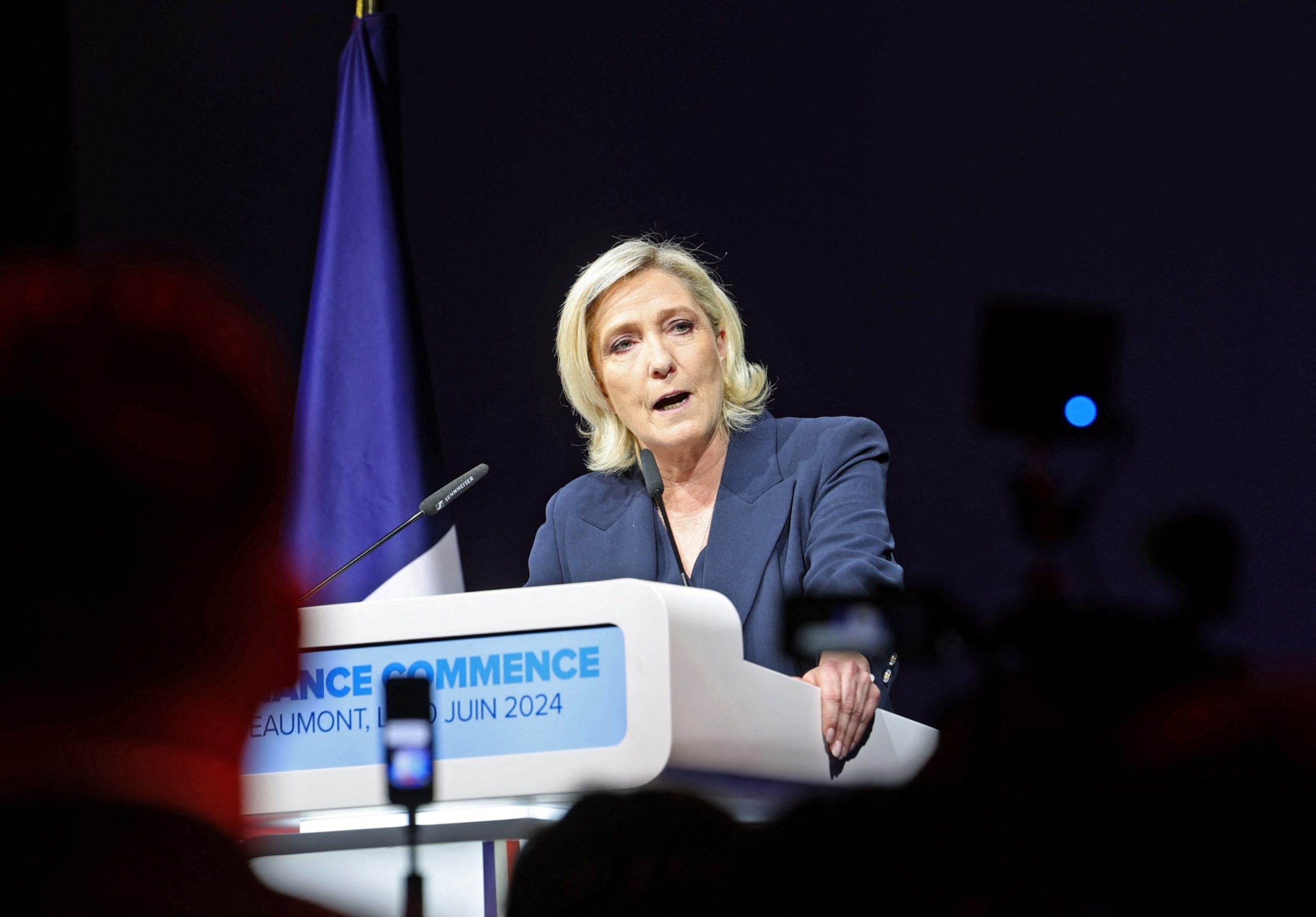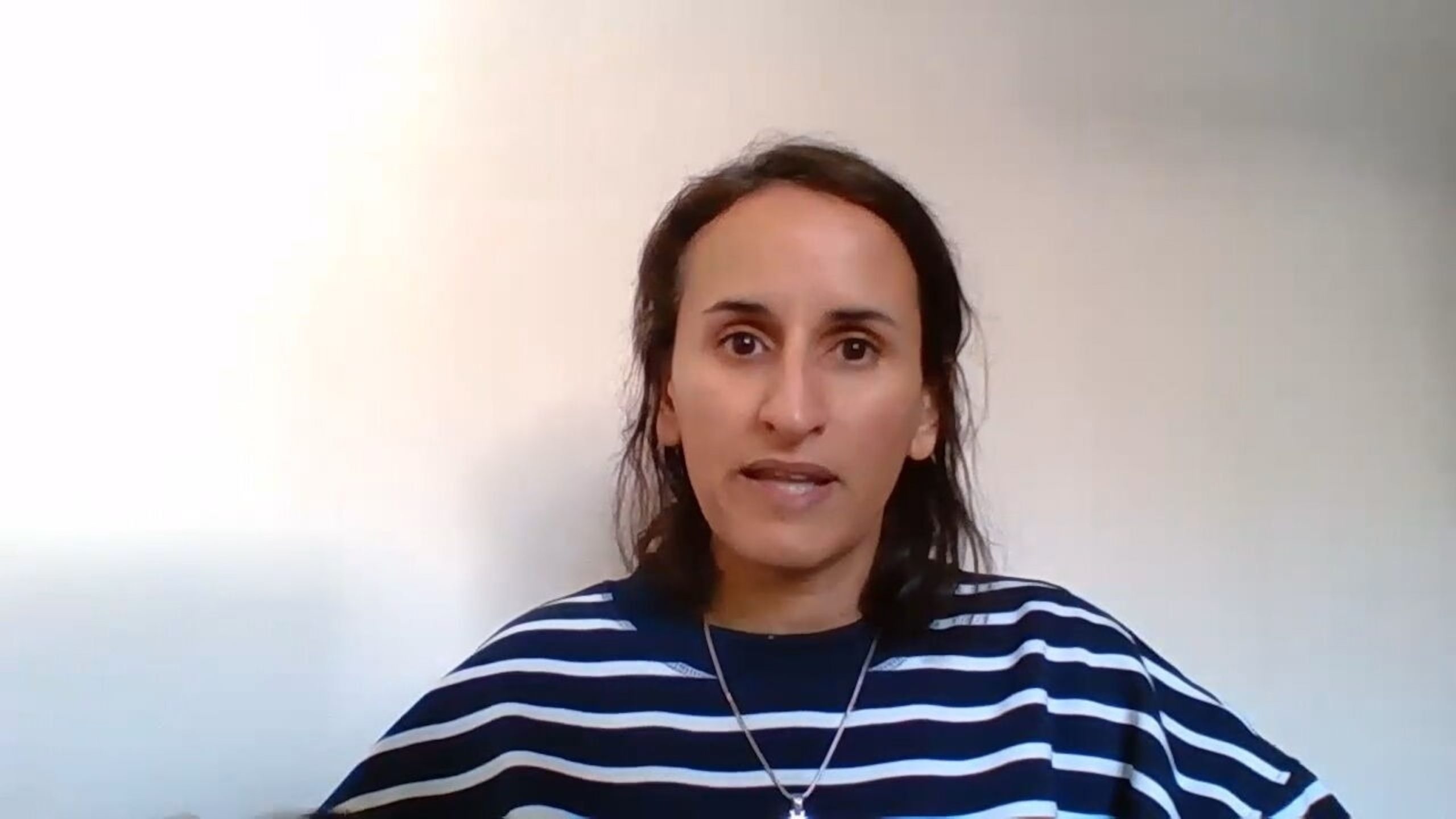PARIS — The Rassemblement National, France‘s main far-right party, made significant strides in the country’s first round of snap legislative elections on Sunday.
Together with its allies, it rallied close to 11 million French voters, totaling 33.2% of the vote, bringing it closer to being able to form a government after next week’s second round of voting.
The snap elections were called only three weeks ago after President Emmanuel Macron’s party suffered a resounding defeat in the European elections. His party placed third yesterday with the left-wing coalition Nouveau Front Populaire in second place, reaching 28% of the vote.
With this historic result, the Rassemblement National is closer than ever before to power. Jordan Bardella, a 28-year-old rising star in the party, would become prime minister if an “absolute majority” — more than half of the 577 seats — is obtained next Sunday by the RN and its allies.
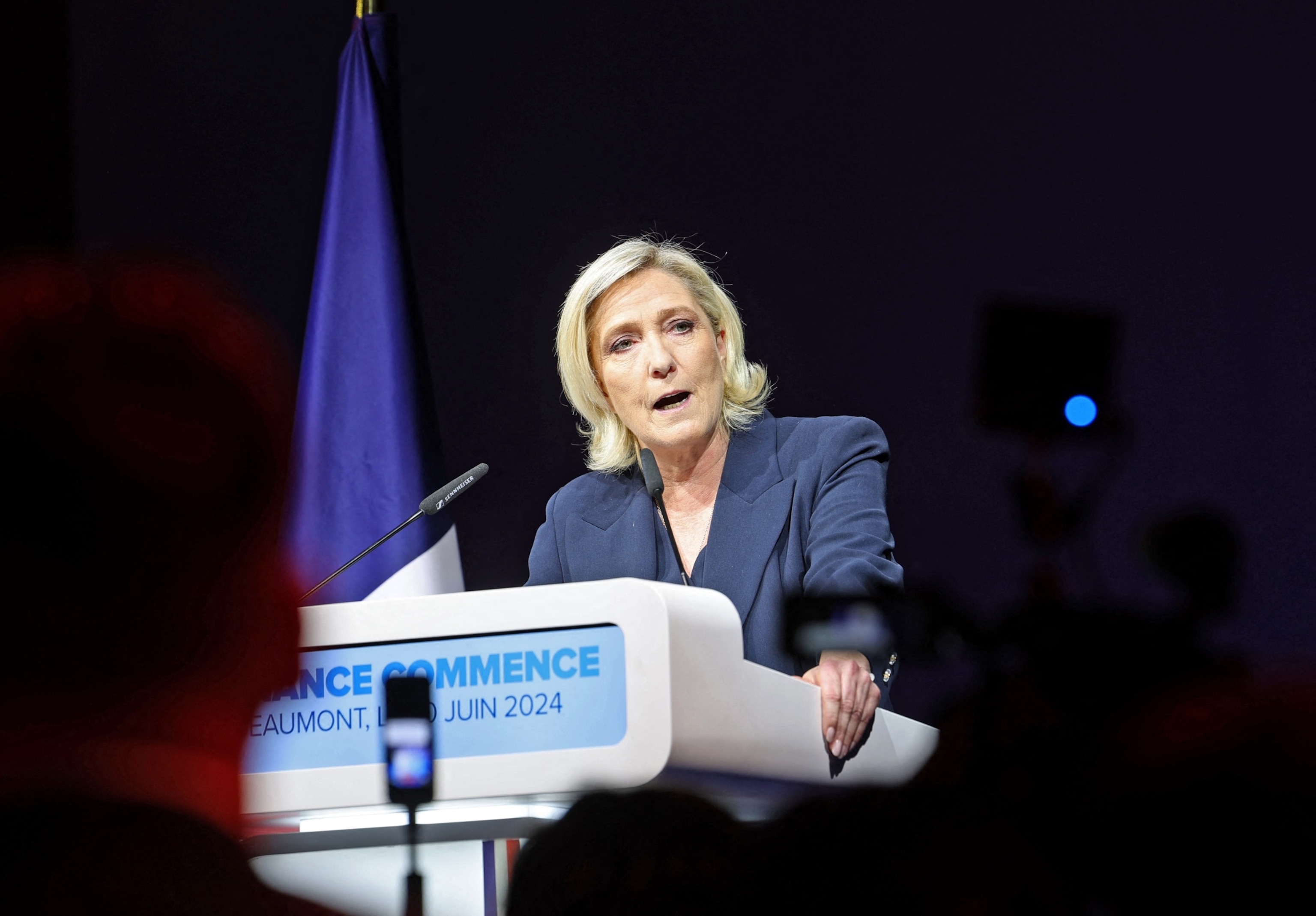
Former president of the French far-right Rassemblement National parliamentary group Marine Le Pen gives a speech during the results evening of the first round of the parliamentary elections in Henin-Beaumont, northern France, on June 30, 2024.
Francois Lo Presti/AFP via Getty Images
Marine Le Pen, president of the party and three-time presidential candidate, celebrated this victory by attacking President Macron and speaking of the “willingness to turn the page after 7 years of contemptuous and corrosive power.”
Le Pen took over the RN from her father, Jean-Marie Le Pen, who has multiple convictions for antisemitic and racist hate speech, and the younger Le Pen has spent the last 12 years trying to change the image of her party.
Final results are far from certain, with more than 500 local elections still to be called to know the full makeup of France’s National Assembly, but a RN “absolute majority” would potentially mean drastic changes in France’s international policy, including support to Ukraine.
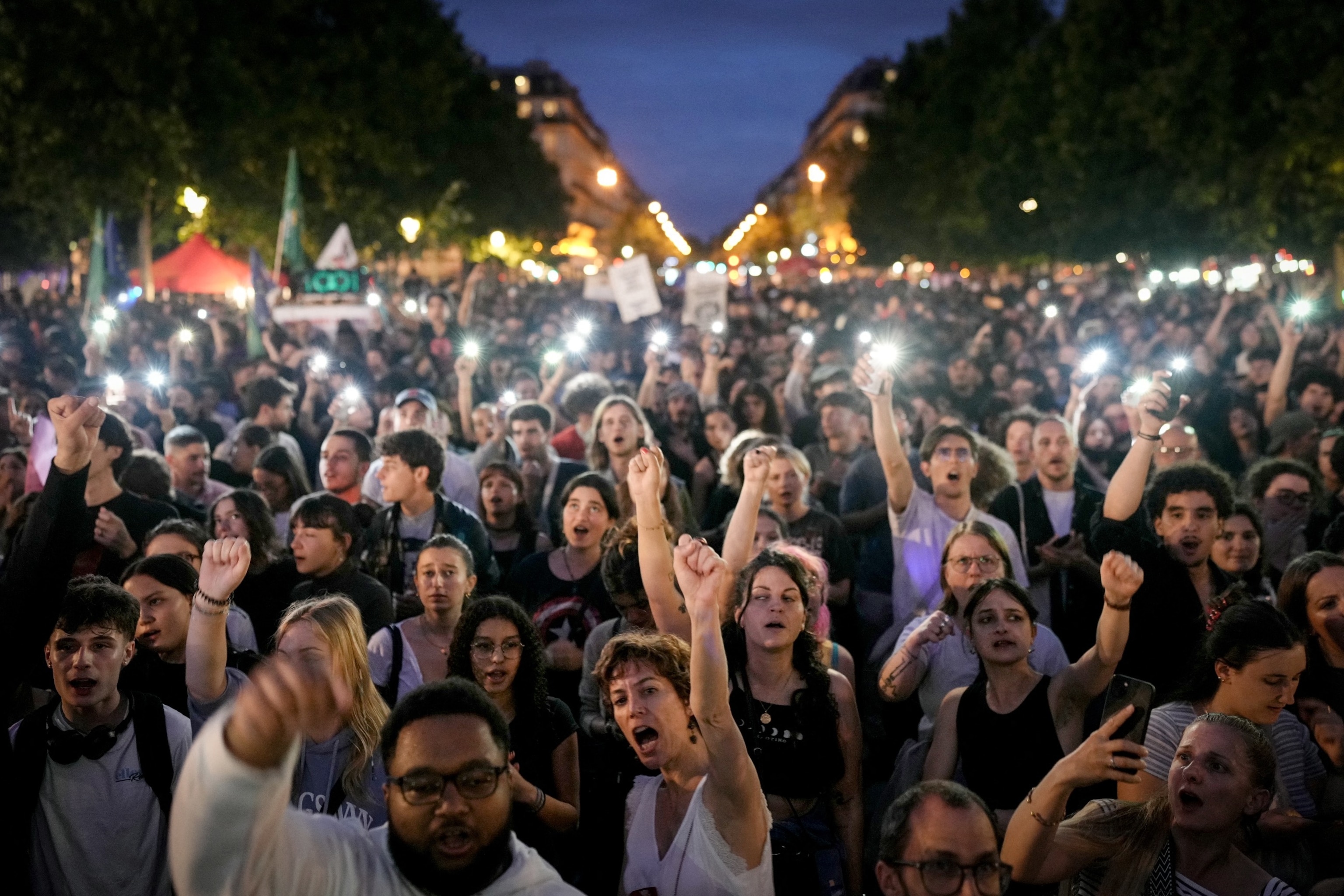
Demonstrators react as they take part in a rally after the announcement of the results of the first round of French parliamentary elections, at Place de la Republique in Paris on June 30, 2024.
Dimitar Dilkoff/AFP via Getty Images
Prime minister-hopeful Bardella has said he remains “in favor of continuing logistical and defense equipment support to Ukraine” but added that he had two “red lines” that he would not cross: “the sending of French troops to Ukrainian territory” and “the sending of long-range missiles or military equipment […] which could directly strike Russian cities.”
This would stop long-range SCALP missile deliveries to Kyiv as well as put an end to Macron’s promise to send French military instructors to Ukraine. The question remains whether the level of funding for Ukraine would change under an RN government.
Bardella recently said that Russia was a “multidimensional threat to both France and Europe,” trying to distance himself from the party’s historically pro-Russia stance.
Le Pen had in 2017 traveled to Moscow to meet with Russian President Vladimir Putin, who was said to be watching the current parliamentary elections “very closely.”
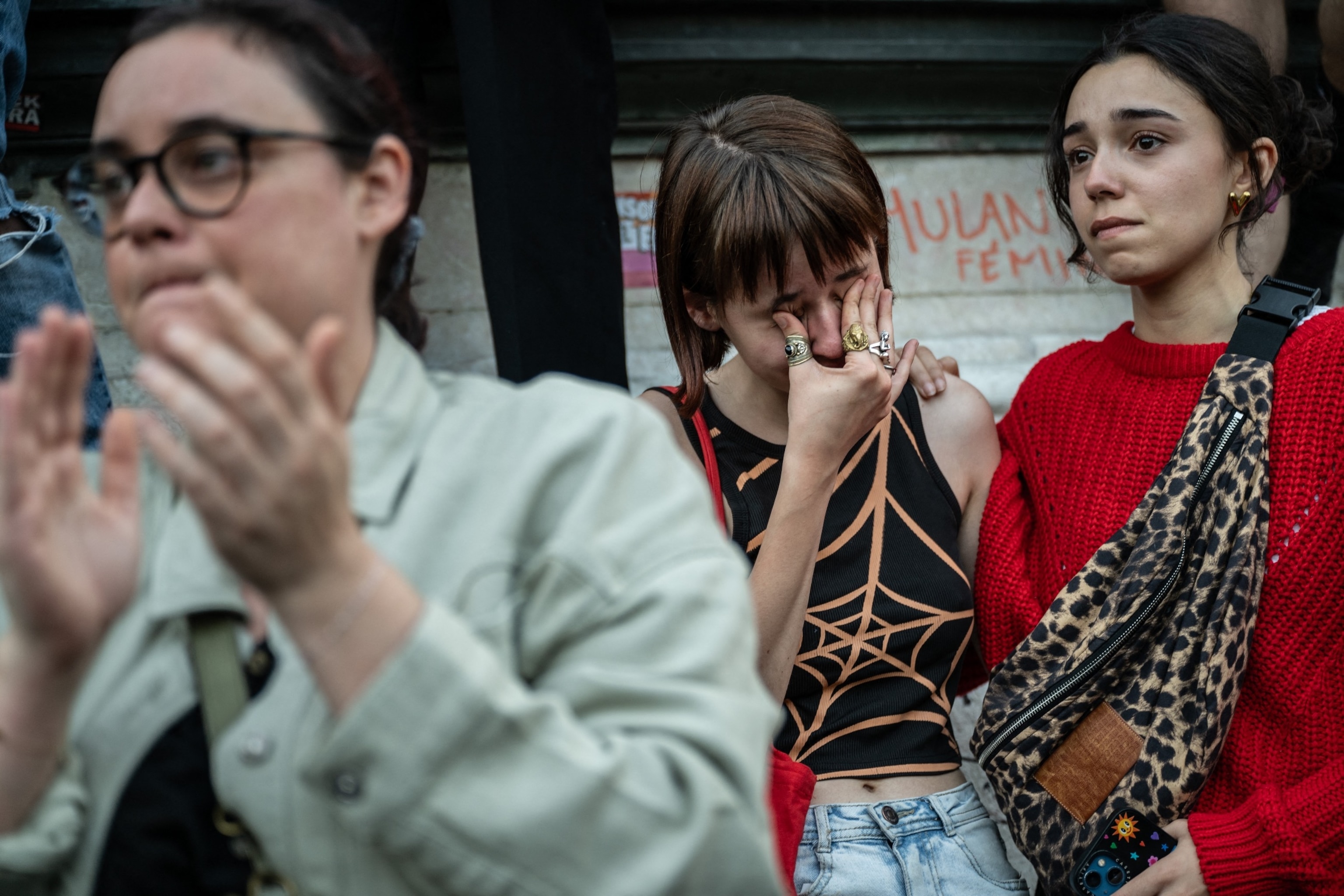
Demonstrators react as they take part in a rally after the announcement of the results of the first round of French parliamentary elections, at Place de la Republique in Paris on June 30, 2024.
Arnaud Finistre/AFP via Getty Images
Because of the two-round voting system and 577 local elections, exact predictions are complicated, with polling agencies giving very rough estimates.
In some local elections, three or four candidates have made it to the second round, which means the left-wing coalition is now pulling out candidates who arrived in third place, in order to block seats for the far-right.
Jean-Luc Mélenchon, leader of radical left La France Insoumise, called on candidates to withdraw if needed: “Not one vote, not one seat more for the RN.”
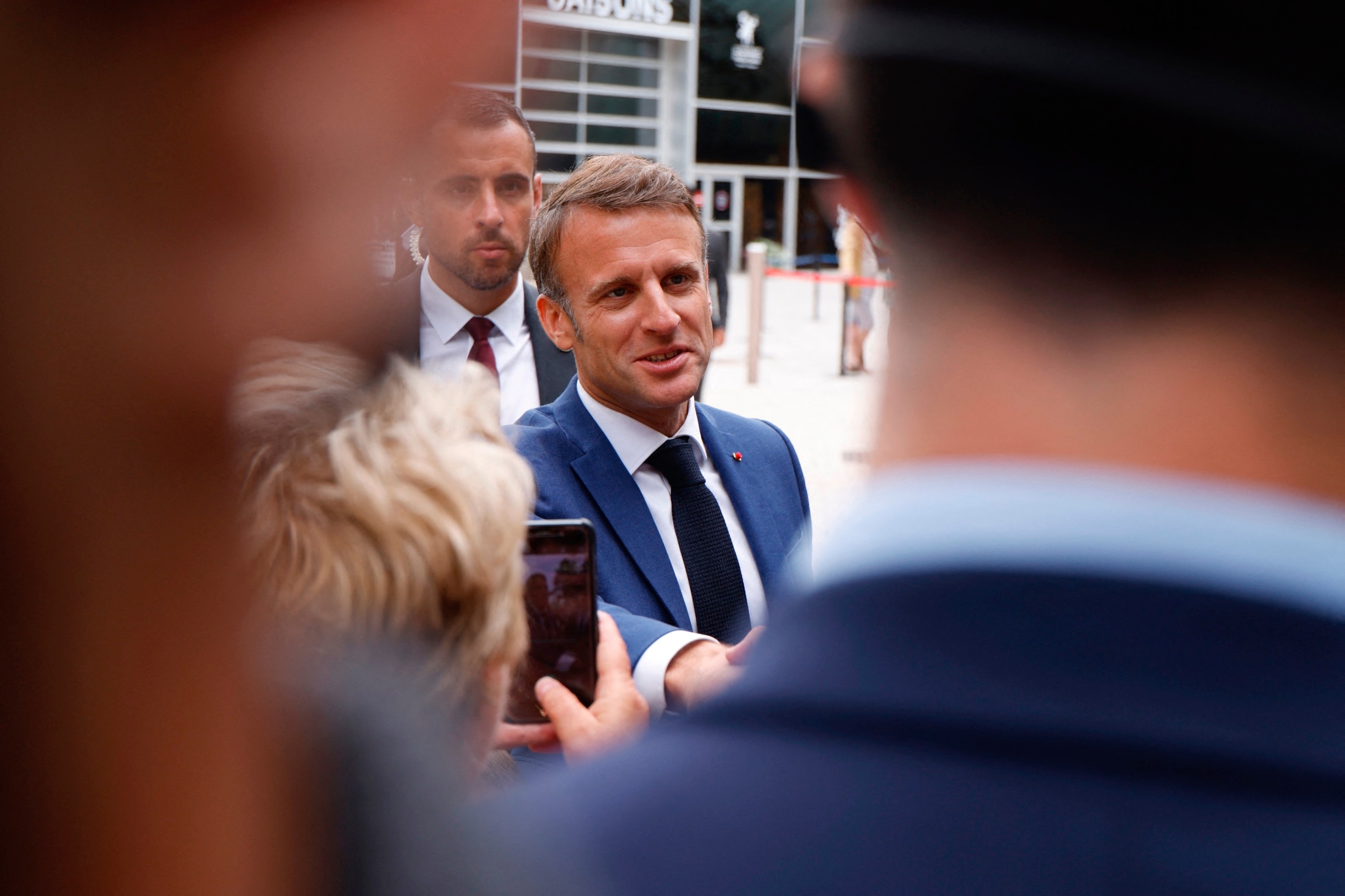
France’s President Emmanuel Macron shakes hands with supporters after voting in the first round of parliamentary elections outside a polling station in Le Touquet, northern France, on June 30, 2024.
Ludovic Marin/AFP via Getty Images
Although a clear idea of whether or not the RN can form a government will only be known next Sunday, the result has already alarmed many, including minority groups, some of which have said they fear they would be more targeted under a far-right party leading the country.
If the RN fails to obtain an absolute majority, France could face a months-long standstill as no party would be able to successfully vote laws or implement policy. In any case, Macron would remain president until 2027.
Voter turnout soared to a 22-year high on Sunday, with French voters going back to the polls in just six days, for a decisive second round that will shape the country’s future.
In recent years, far-right political parties have been gaining traction in various European countries, including France. The rise of these parties has raised concerns about their potential impact on international relations, particularly with regards to countries like Ukraine. With the recent gains made by far-right parties in the French elections, there is growing speculation about what this could mean for France’s support for Ukraine and the implications for the future.
The far-right parties in France, such as the National Rally (formerly known as the National Front), have been known for their nationalist and anti-immigrant rhetoric. These parties often advocate for policies that prioritize national interests over international cooperation, which could have significant implications for France’s foreign policy towards Ukraine.
Historically, France has been a strong supporter of Ukraine, particularly in its efforts to resist Russian aggression and maintain its sovereignty. France has been a key player in diplomatic efforts to resolve the conflict in Eastern Ukraine and has provided military support to the Ukrainian government. However, with the rise of far-right parties in France, there is concern that this support could be jeopardized.
Far-right parties in France have been critical of the European Union and have expressed skepticism towards international alliances and institutions. This could potentially lead to a shift in France’s foreign policy towards Ukraine, with a focus on prioritizing national interests over supporting Ukraine’s efforts to resist Russian aggression.
The implications of a potential shift in France’s support for Ukraine are significant. Ukraine relies on international support to maintain its sovereignty and resist Russian aggression. A decrease in support from France could weaken Ukraine’s position in negotiations with Russia and other international actors.
Furthermore, a shift in France’s support for Ukraine could have broader implications for European security and stability. A weakened stance on Ukraine could embolden Russia to further escalate its aggression in the region, leading to increased tensions and potential conflict.
It is important for policymakers in France and across Europe to carefully consider the implications of far-right gains in French elections on support for Ukraine. Maintaining a strong stance in support of Ukraine is crucial for upholding international norms and principles, as well as ensuring peace and stability in Europe.
In conclusion, the impact of far-right gains in French elections on support for Ukraine could have significant implications for the future. It is essential for France to continue its support for Ukraine and uphold its commitments to international cooperation and security. Failure to do so could have far-reaching consequences for Ukraine, Europe, and global security as a whole.
